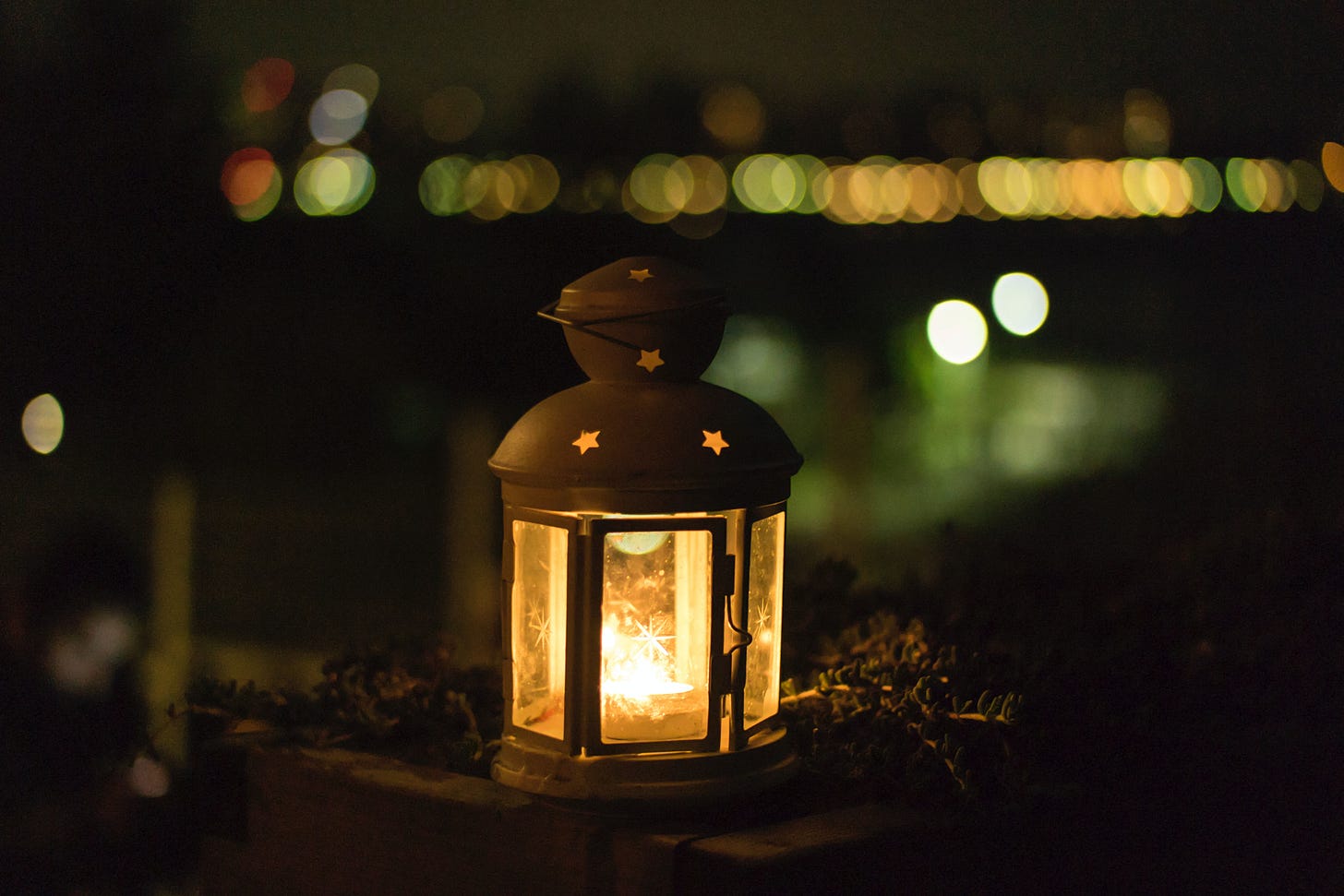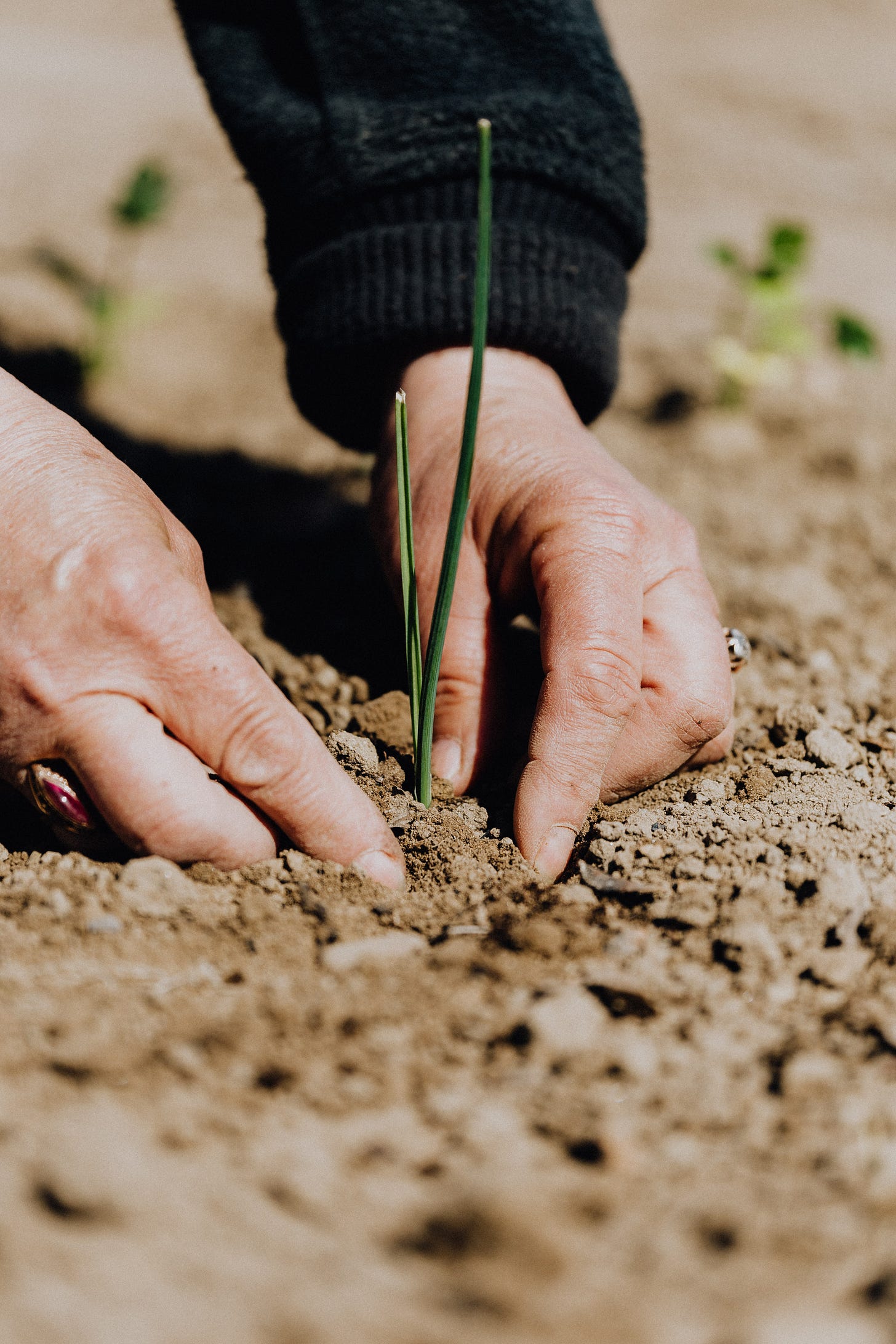Friday Notes - Grief: The Simple and the Complex
While grief over my grandmother's death is simple, my grief over the wildfires and climate crisis is not
Welcome! I am Jessica Hetherington, and this newsletter is about faith and climate action. You can subscribe by clicking here:
Anniversary Sale!
On Monday, June 5, it was the one-year anniversary of the launch of my ecotheology ministry, including this newsletter. What a year it has been! To celebrate, I am offering a sale on paid subscriptions to this newsletter. Until June 20/23, you will get 20% off a monthly or annual subscription for one year. It will only cost $6.40/mo CAD or $64/yr CAD! If you are interested in having full access to Following in the World and supporting my work, this is the time to sign up! Here is the easy link:

Grief: The Simple and the Complex
Last Friday, I let you all know that I was sitting vigil with my dying grandmother. Thank you to all of you who offered prayers and words of condolences. My beautiful Nanny died peacefully yesterday, June 8, at 8 pm. She was 98 years old.
My grief for her is very strong. It is a simple grief; there are no other emotions mixed in there. She loved me unconditionally, and I was able to spend a lot of time with her in her last days: blessing her, telling her I loved her, feeding her, and wiping her brow. There was nothing left unsaid; no complicated feelings of anger or fear; no regrets. She lived a good, long life. She loved me (and my family), and I loved her. She is now in heaven with all who went before her. She promised to watch over me while I am still here, and I believe her.
It is a simple grief.
My grief, however, over the climate crisis and the wildfires raging across Canada this week, is not simple. It is far more complex.
I live in Ottawa, Canada, one of the places that had the worst air quality in the world on Wednesday. This was because of the smoke wafting over my city from out-of-control, historic-level wildfires in Quebec and near Calabogie, Ontario, about 150 km away. Most of you have seen the images of orange skies here and in New York City.
These fires join those burning in Alberta, Nova Scotia and British Columbia. Canada is slated to have the worst summer for wildfires in history. This is all due to global heating.
My grief about these fires, and their impacts on human and planetary health, is complex. It is a grief that is compounded by rage, anger, shame, and guilt. It is a grief that is compounded by a sense of powerlessness and hopelessness. It is a grief filled with unspoken expectations, unfinished conversations, and a lack of unconditional love – for the Earth, for both human and more-than-human neighbours.
As I prepare this week for the funeral of my grandmother, I sit not only in the simple grief of her death but in the complex grief of the climate crisis. I sit with the knowledge that there are things I must do, and things I must say, to leaders, to my neighbours, and to the Earth community of which I am a part before it is too late. Before it is too late.
Quote

In reflecting upon the complex grief I am feeling about the climate emergency, I did what I do; I went looking for meaningful words written by others. Poet Emily N. Johnston offers us this:
“We can feel fear and grief and anger – we can even feel avoidant sometimes – and still attend to the world’s very real and immediate needs. And in truth, serving the world’s needs is the only thing that I have seen consistently lighten the fear and grief and anger in others, and the only thing that has done so consistently in my own life. There is also, perhaps oddly, joy in this world. It’s made me more deeply alive and connected, with a clearer perspective on what matters, and has surrounded me with friends who share my care for the world.”[1]
Books for Transformation
Earth Emotions: New Words for a New World by Glenn A. Albrecht (Ithaca: Cornell University Press, 2019)
People are seeking to find language to describe this new era that we are in. Glenn Albrecht is an environmental philosopher out of Australia who seeks to describe our human emotions, both positive and negative, regarding the Earth. For example, he has coined the term solastalgia to describe the homesickness we feel while we are still at home, but where our world is changing around us due to climate change and the ecological crisis. Reflecting upon old terms that have new resonance in our time, and creating new ones to describe conditions that are entirely new to the human experience, Albrecht is seeking to help us realign ourselves with the Earth community in which we live and move and have our being. It makes me think of that beautiful quote by Fred Rogers, “Anything that’s human is mentionable, and anything that is mentionable can be more manageable.” Albrecht is seeking to make what we are experiencing at this time mentionable, and thus manageable.
The Sixth Extinction: An Unnatural History by Elizabeth Kolbert (New York: Picador, 2014)
I have been speaking and writing about the fact that we are currently in the sixth extinction period in Earth history, with the distinction that this one is human-caused. Given how important that fact is for confronting the ecological predicament we are in, both as people of faith and more generally, I thought that it was time to read this book. It is a Pulitzer Prize-winning work that offers readers a compelling and accessible summary of research from many disciplines. Kolbert is inviting us to rethink what it means to be human in the Earth community. While this is not a religious text, this is a fundamentally religious question that each one of us needs to consider. We need the best scientists, writers, and thinkers to help us do so. Kolbert is one of them.
Friday Five

Five resources to help with climate grief and other difficult emotions related to the climate crisis:
The Commons Social Change Library on Climate Anxiety and Grief
All We Can Save Project on working with climate emotions
My grief over the climate crisis and the wildfires raging across Canada this week is not simple. It is far more complex.
[1] Emily N. Johnston, “Loving a Vanishing World,” in All We Can Save: Truth, Courage, and Solutions for the Climate Crisis, ed. Ayana Elizabeth Johnson and Katharine K. Wilkinson (New York: One World, 2021), 260.







